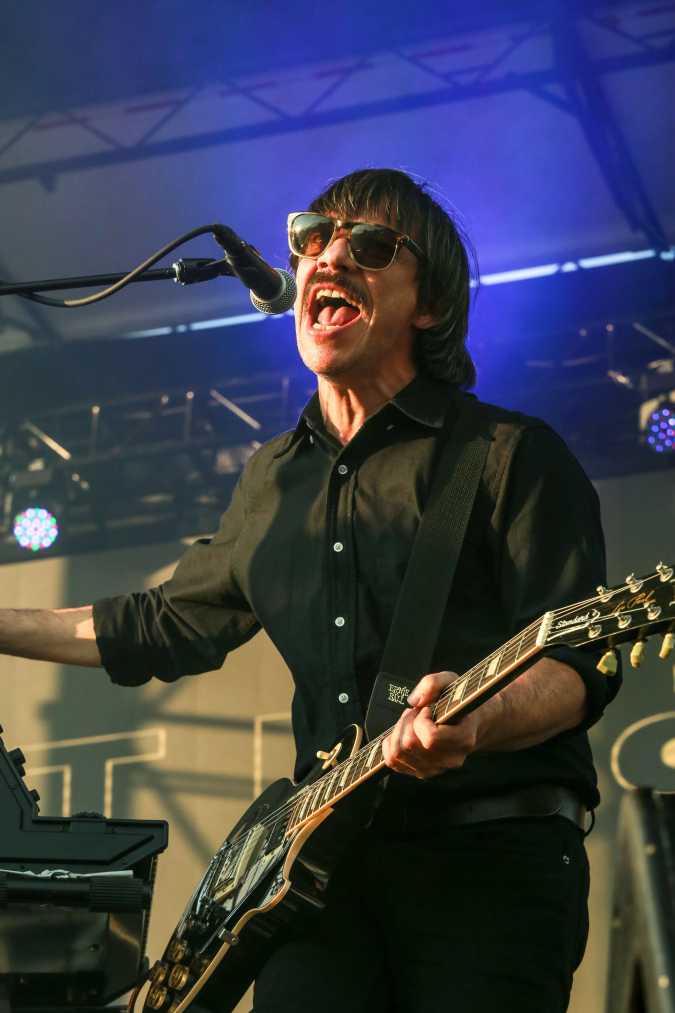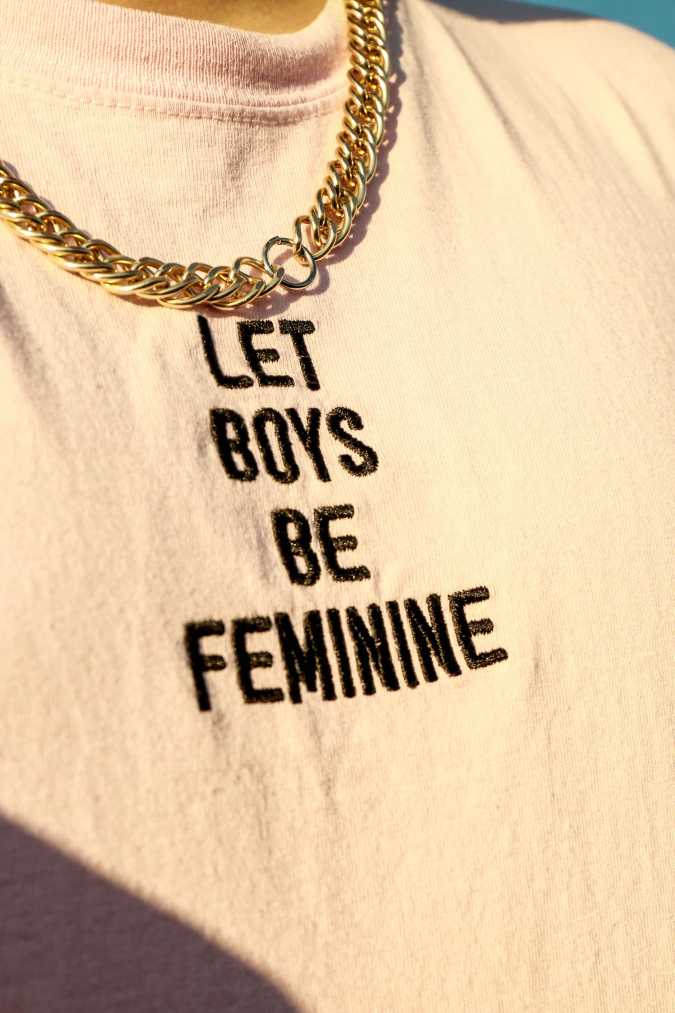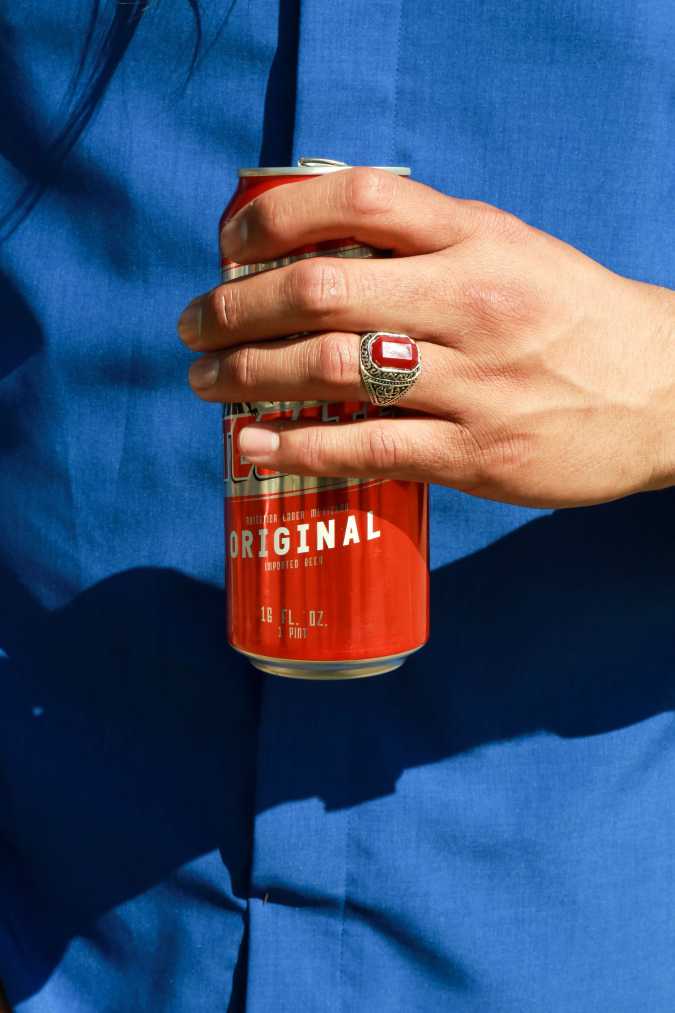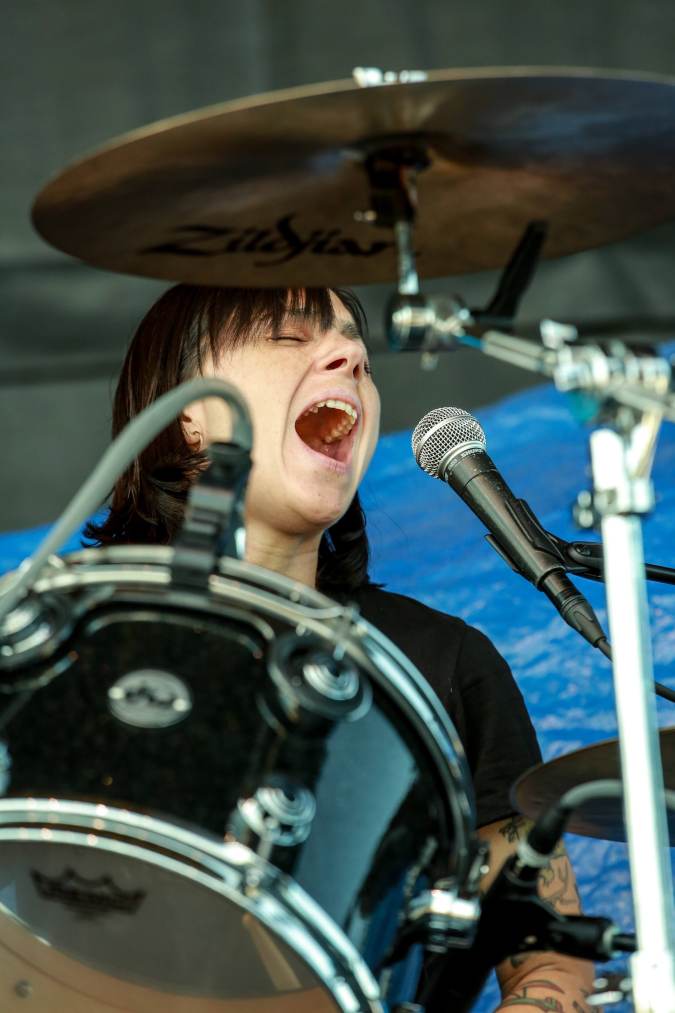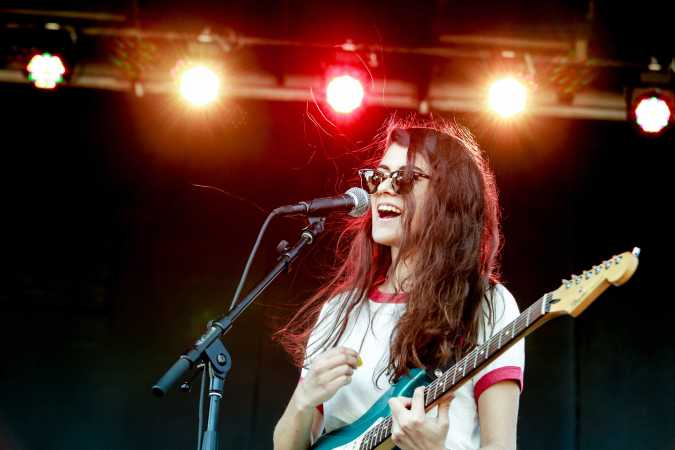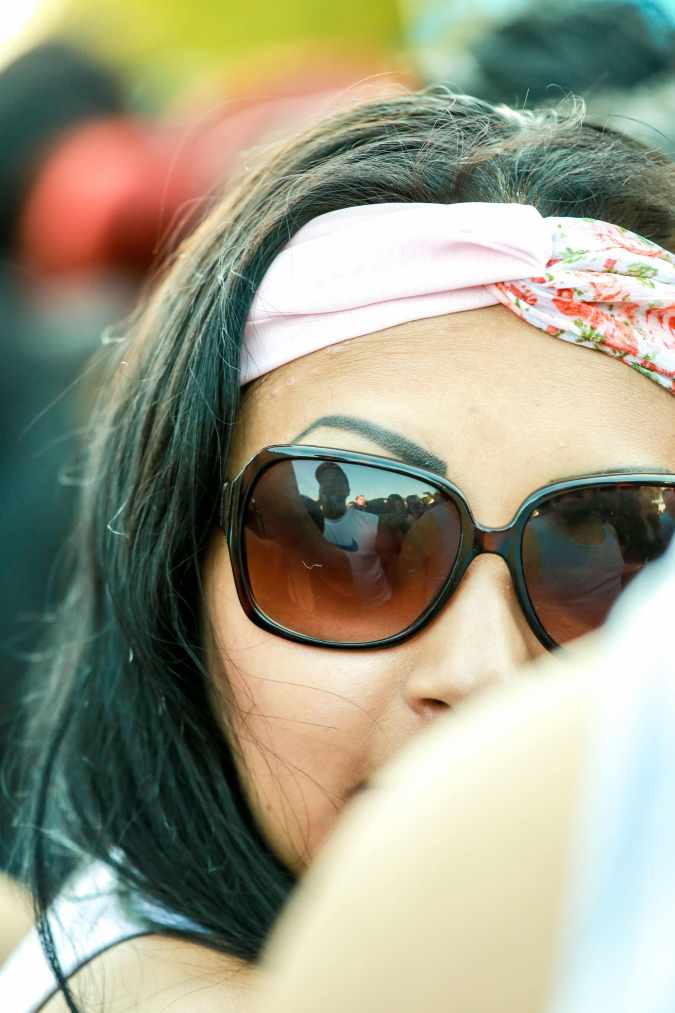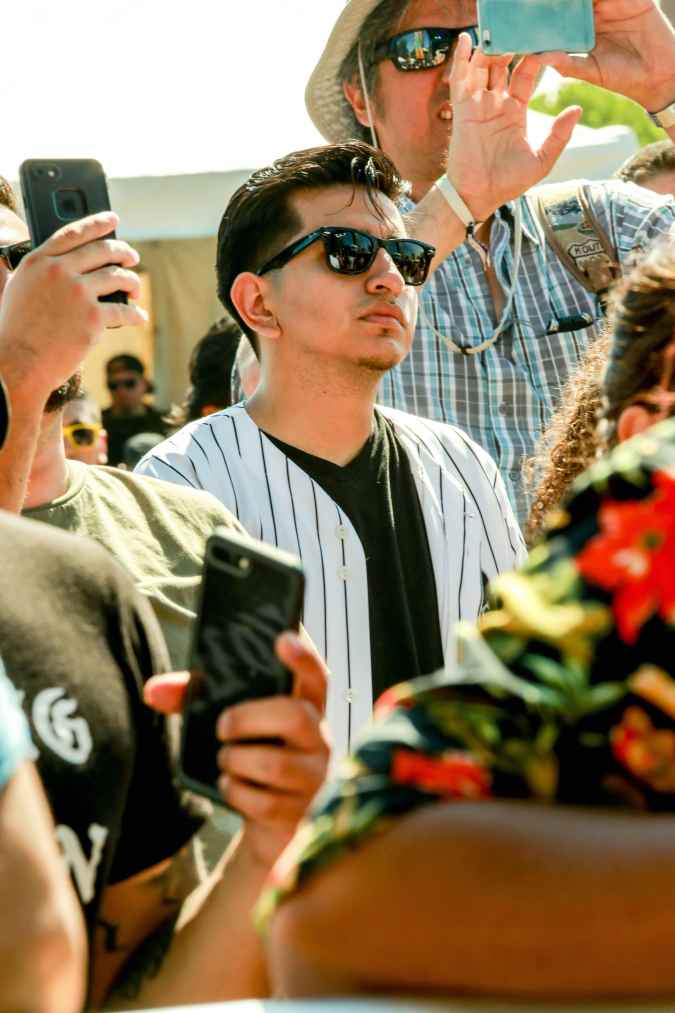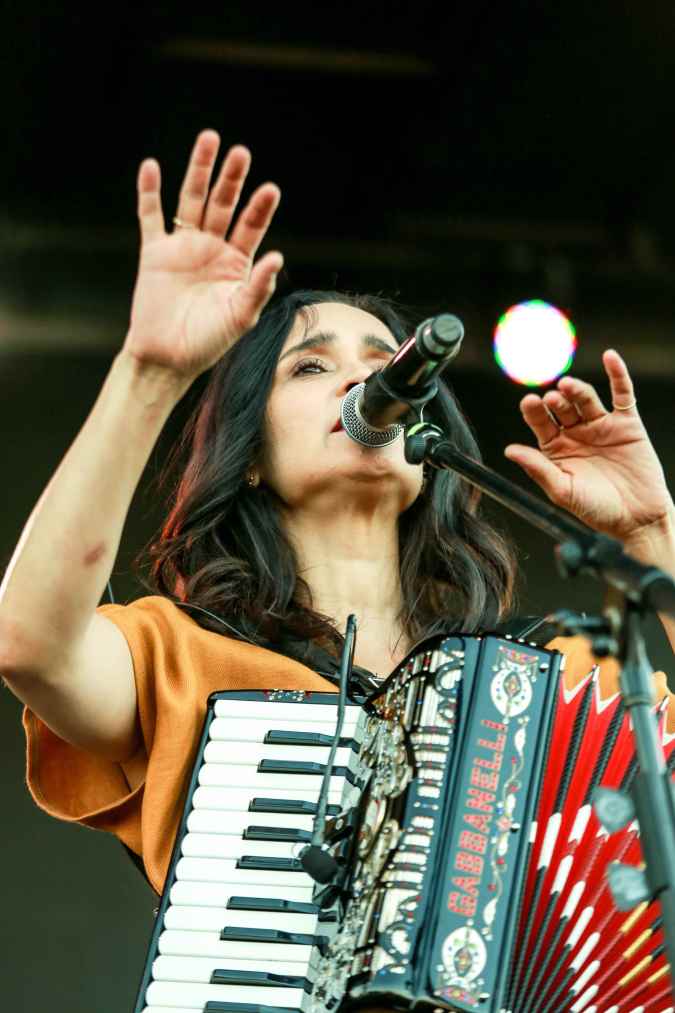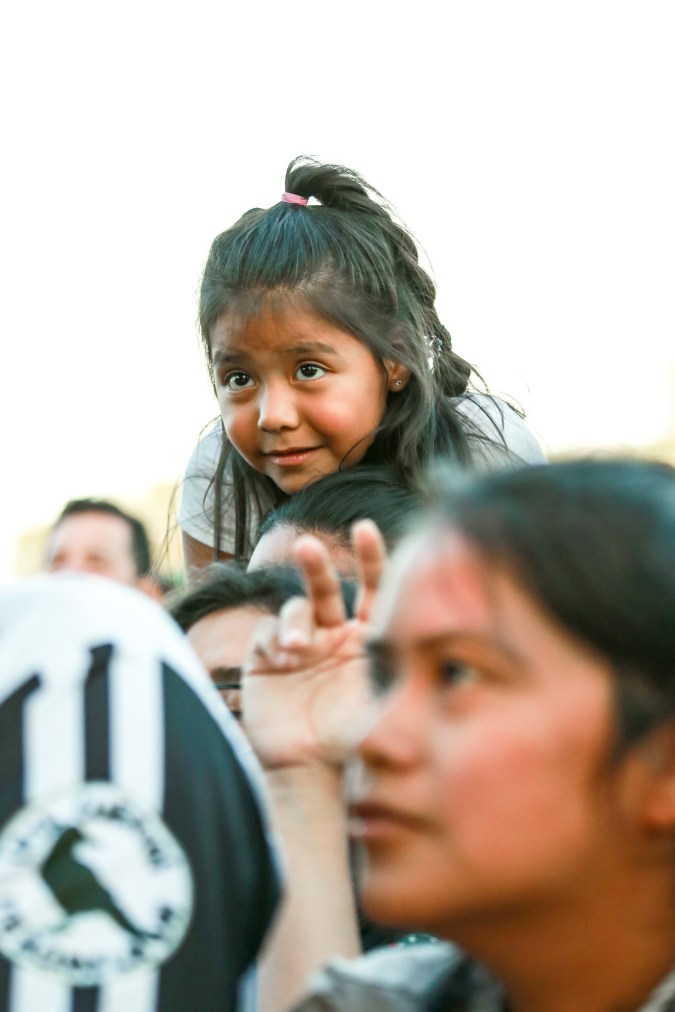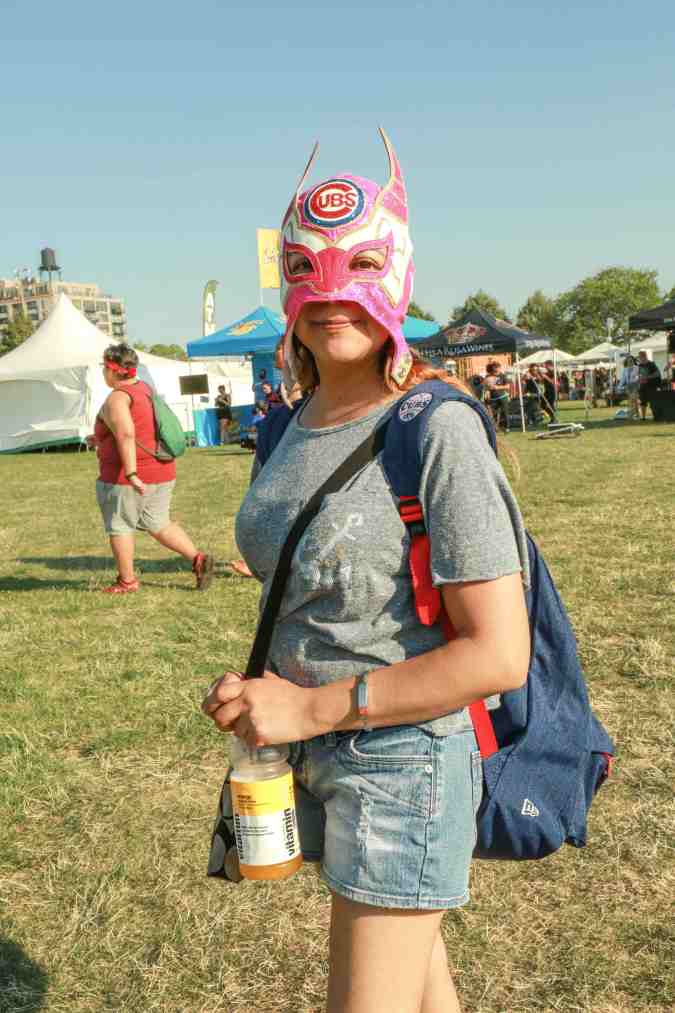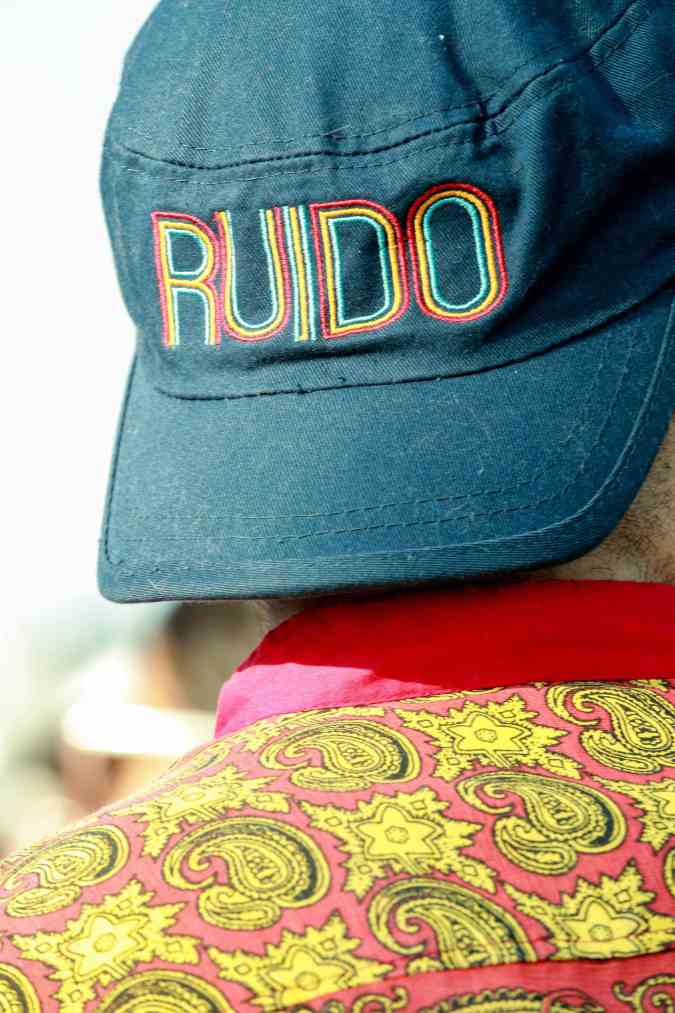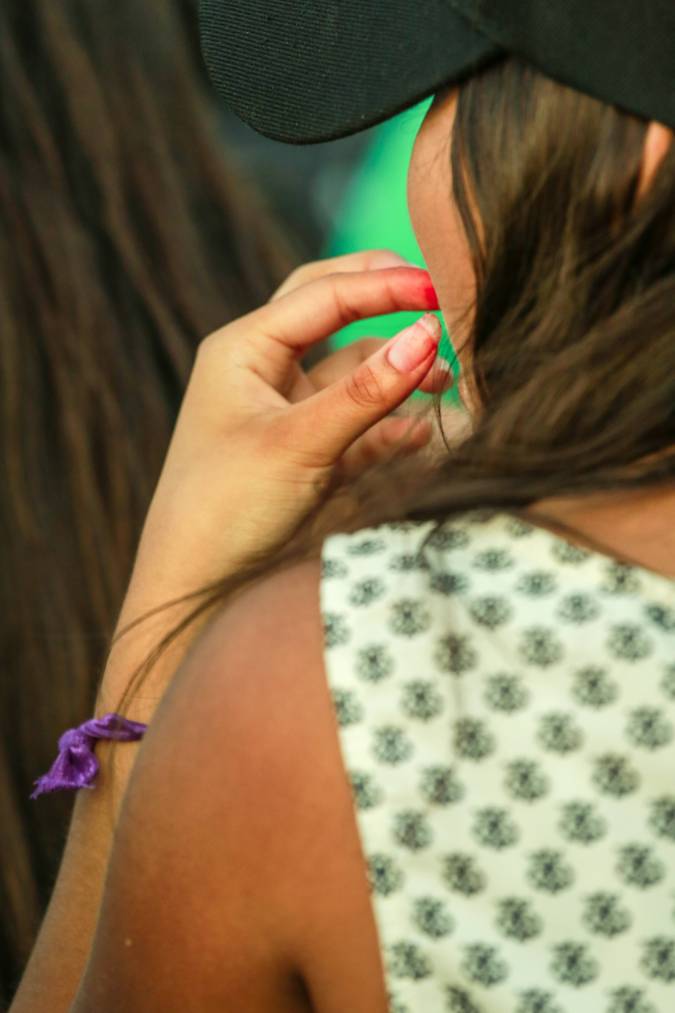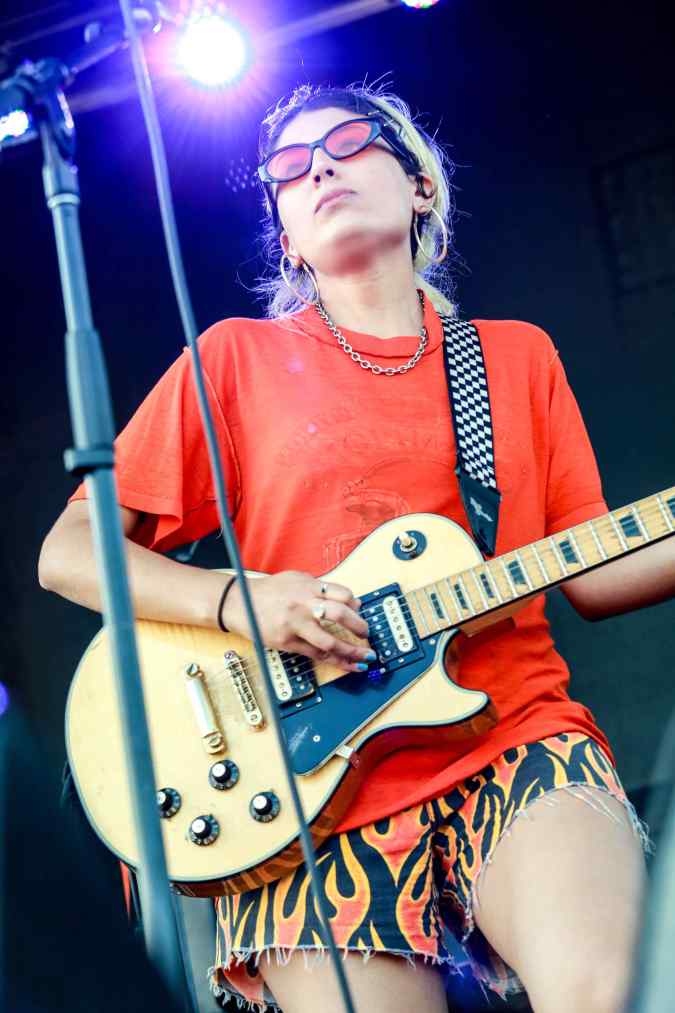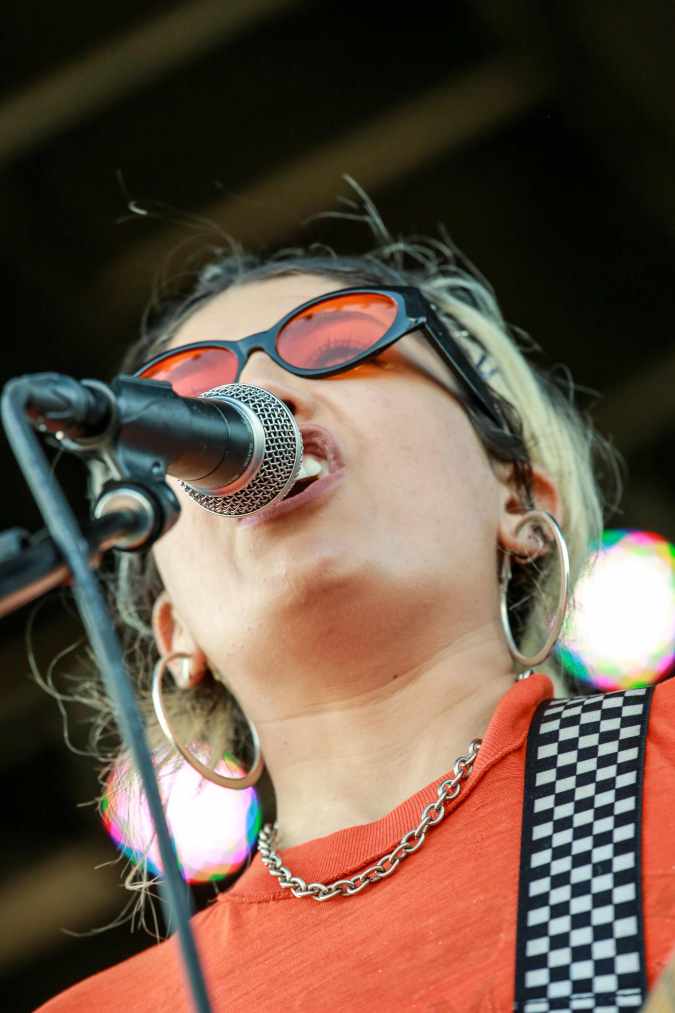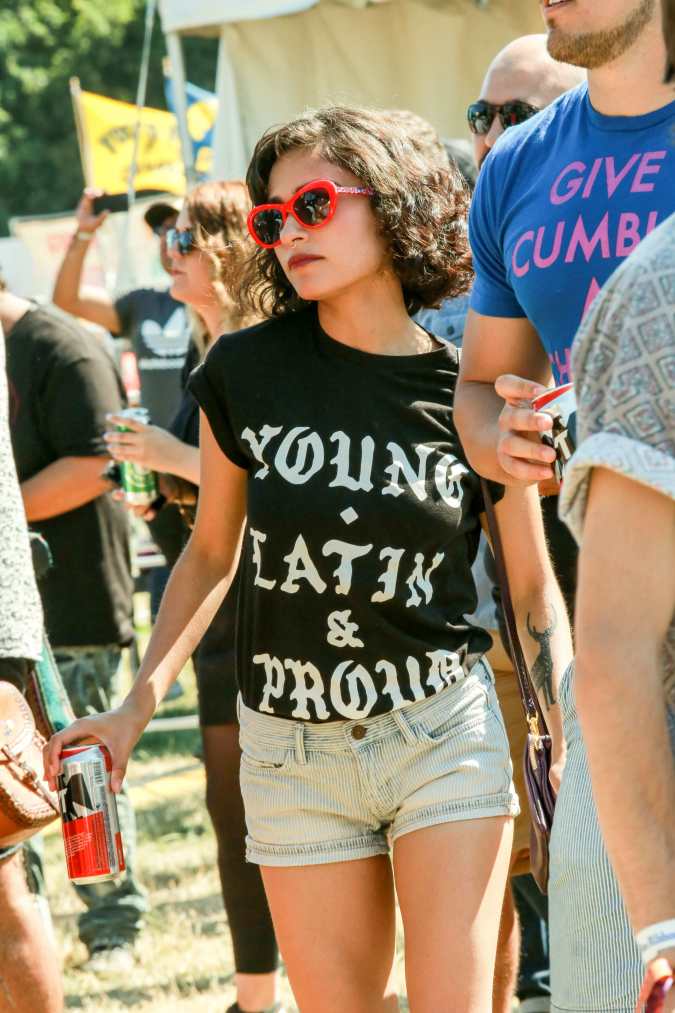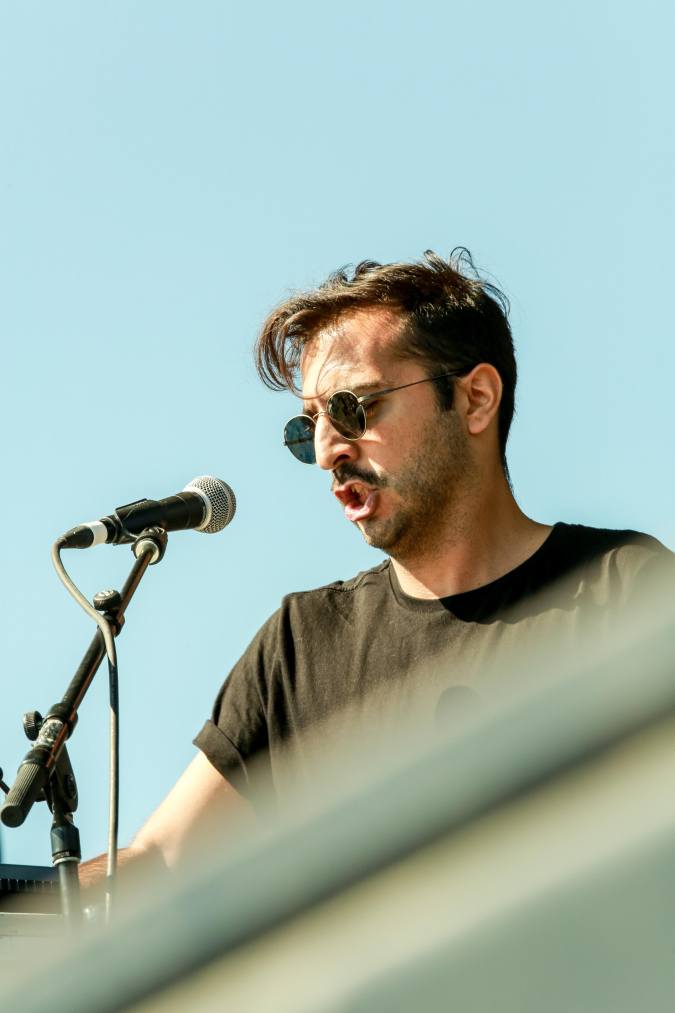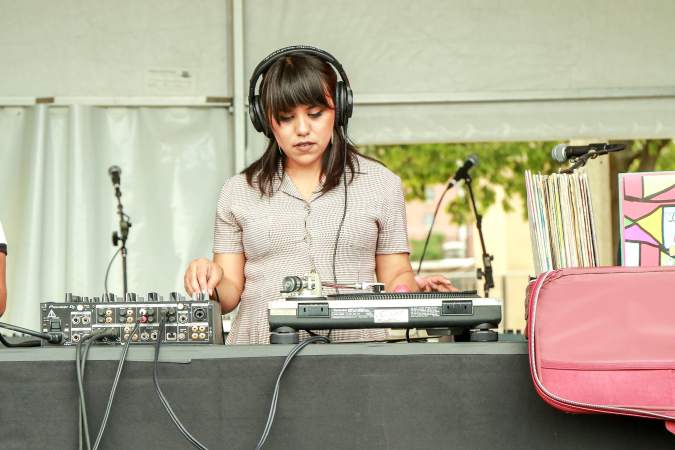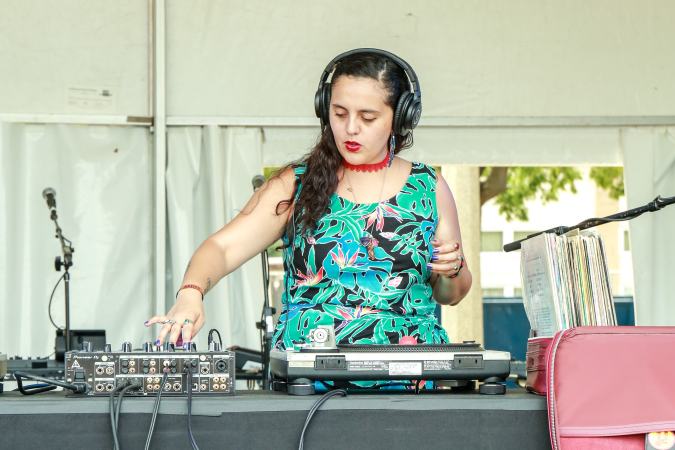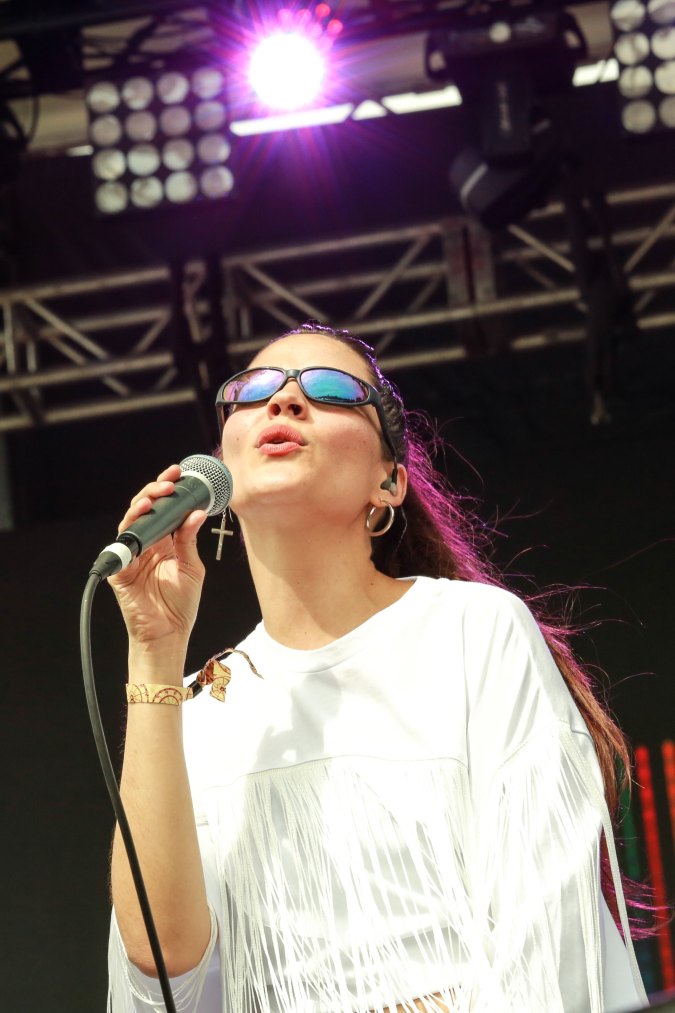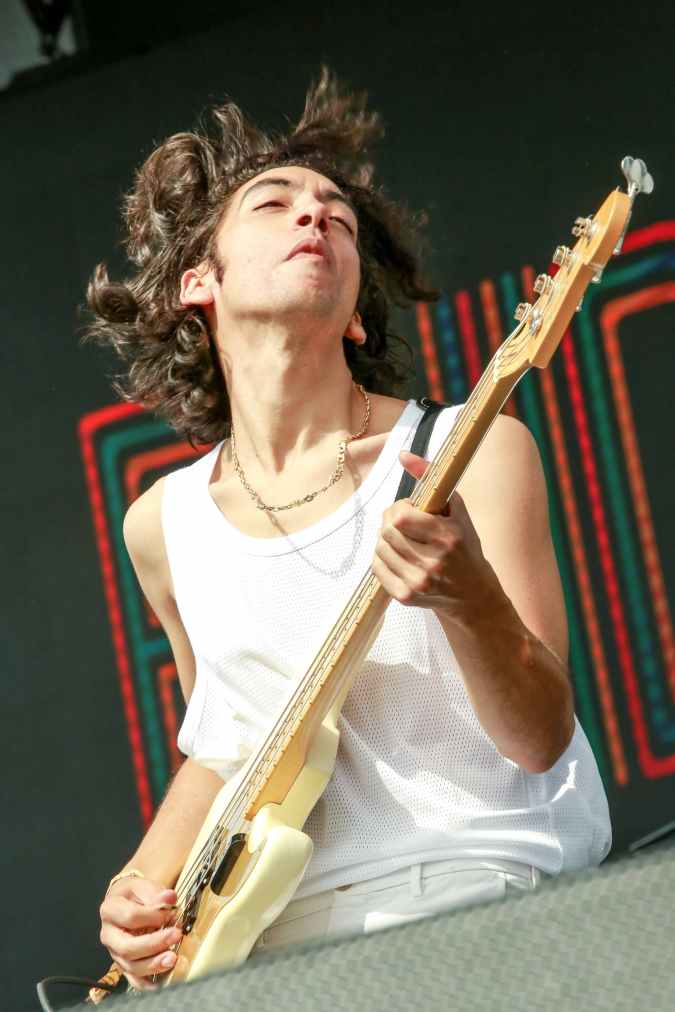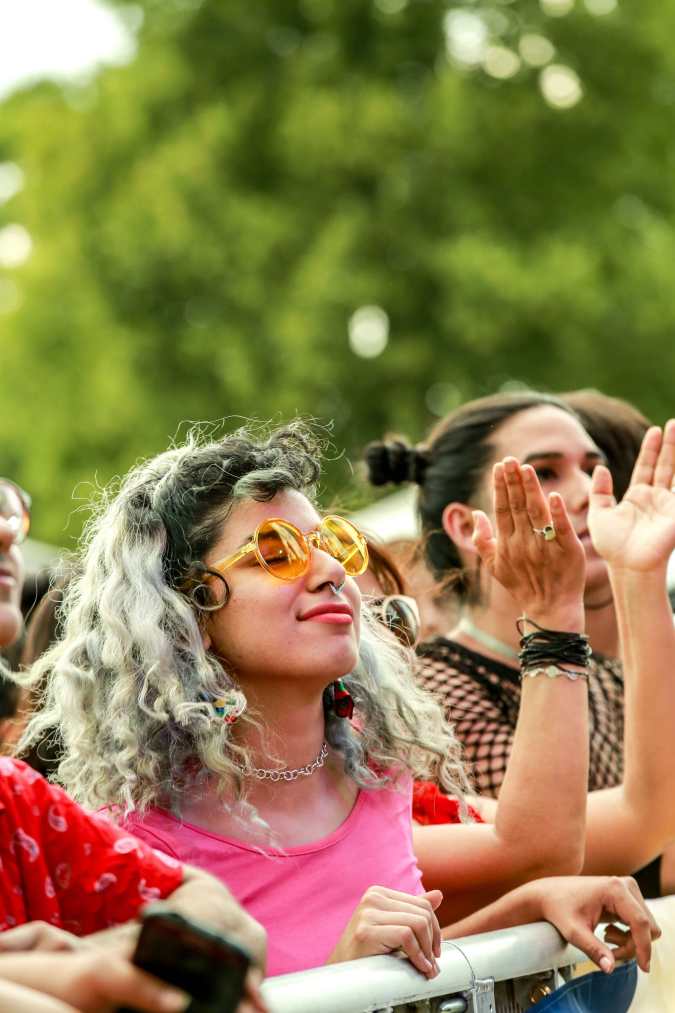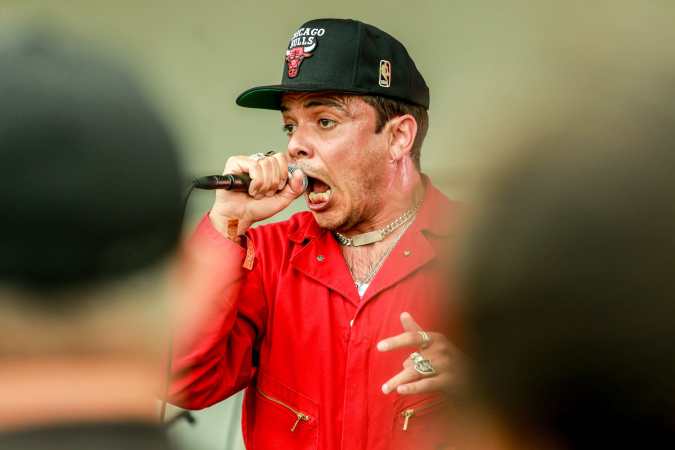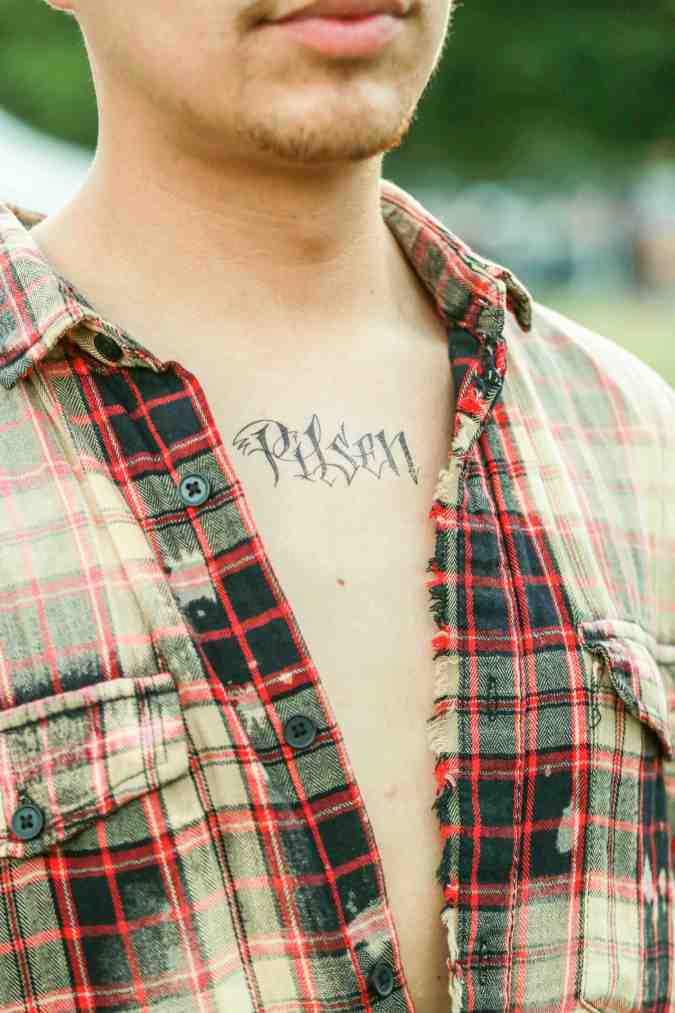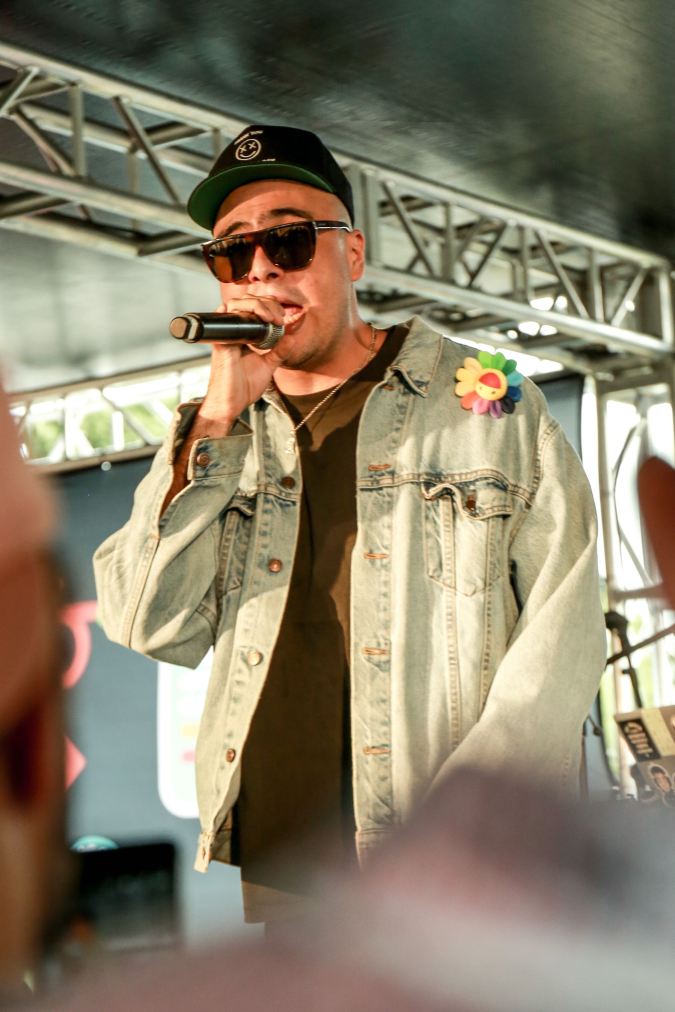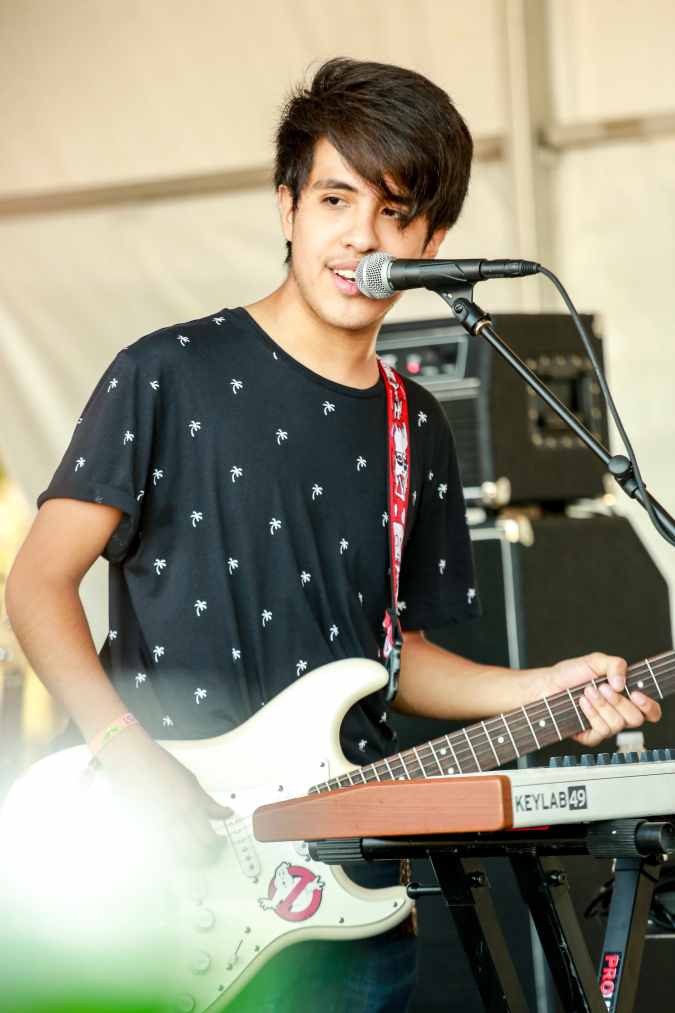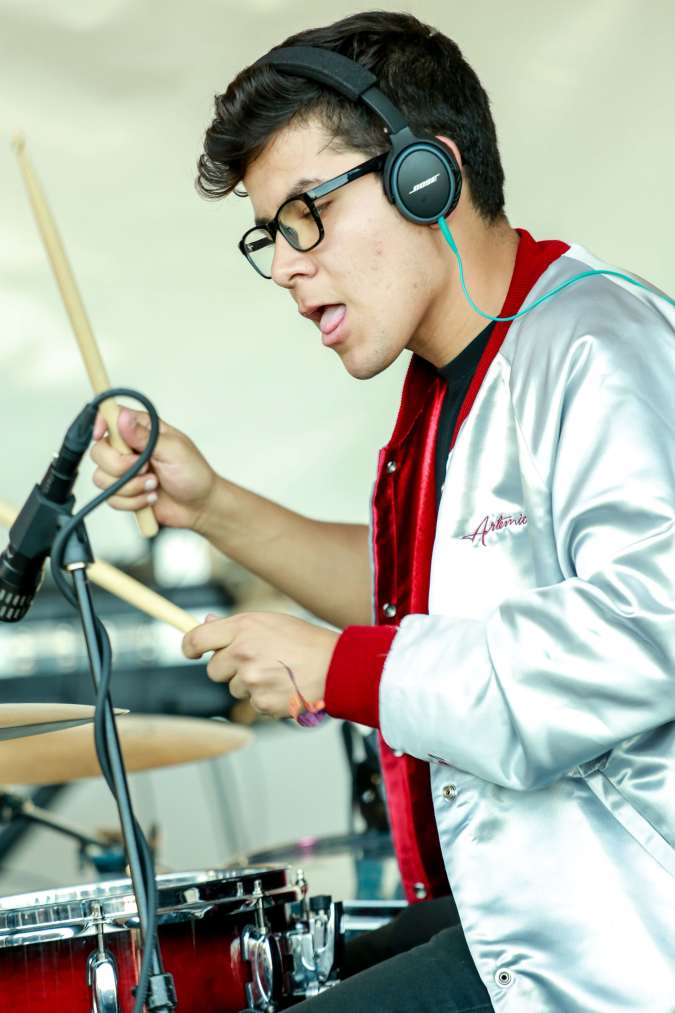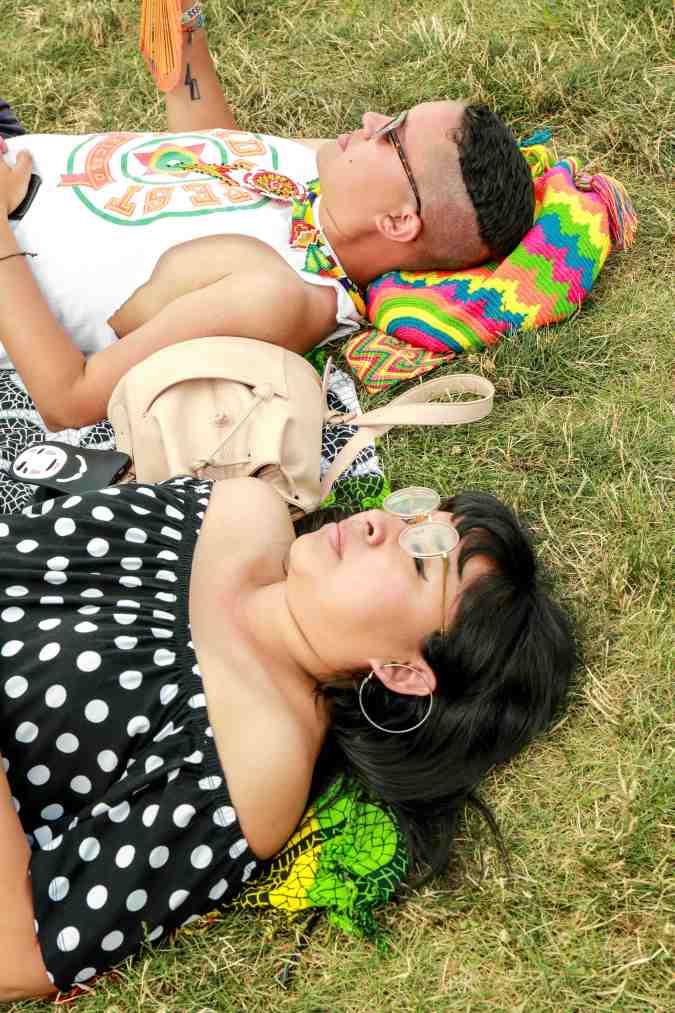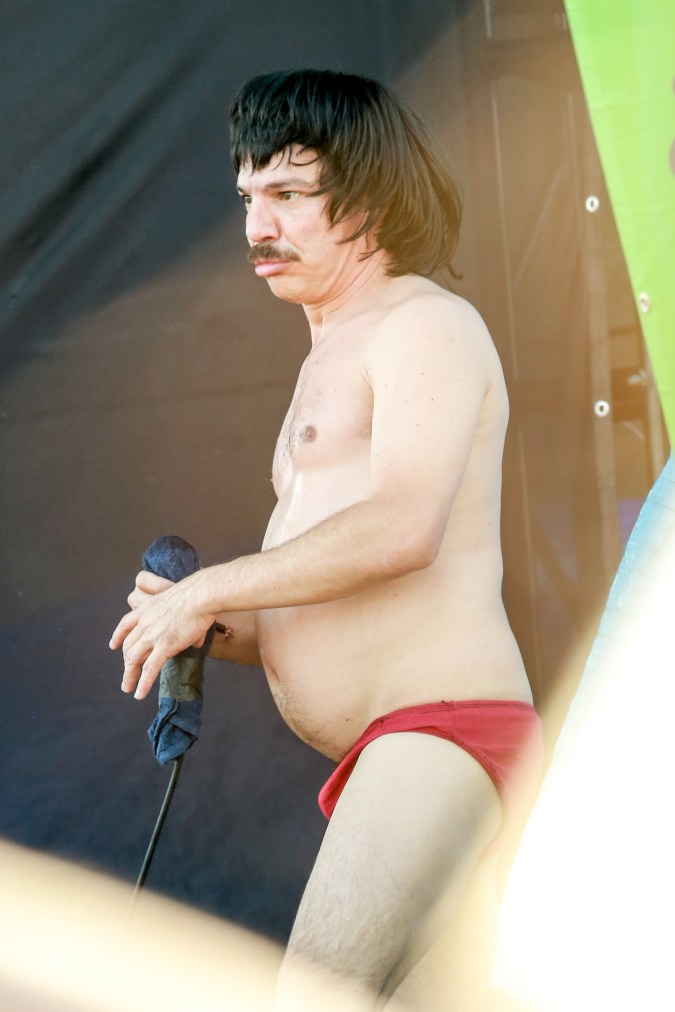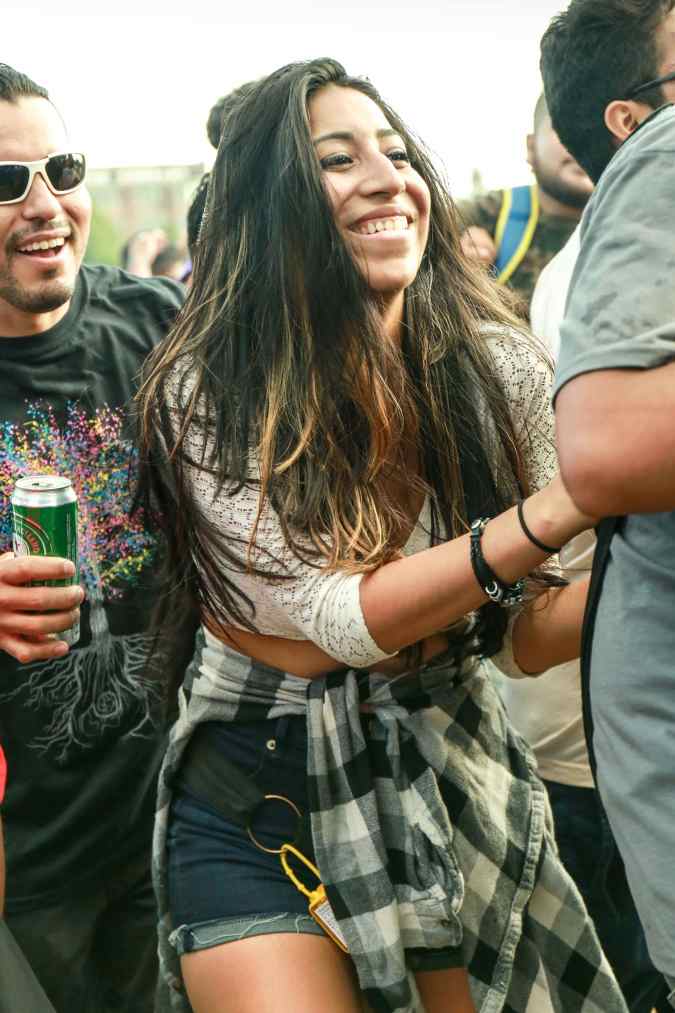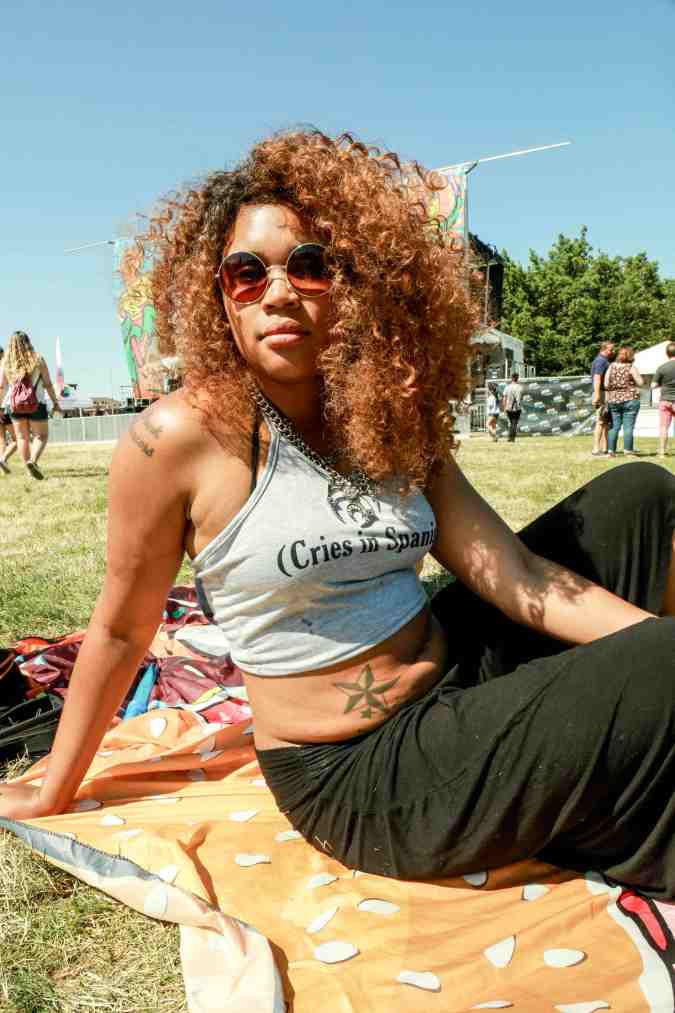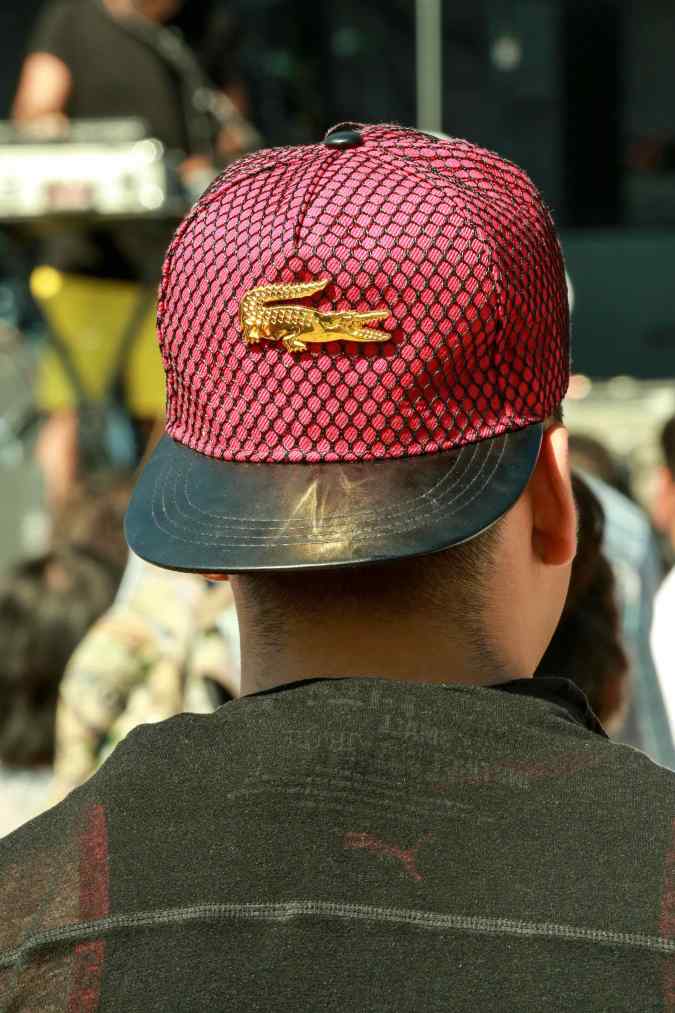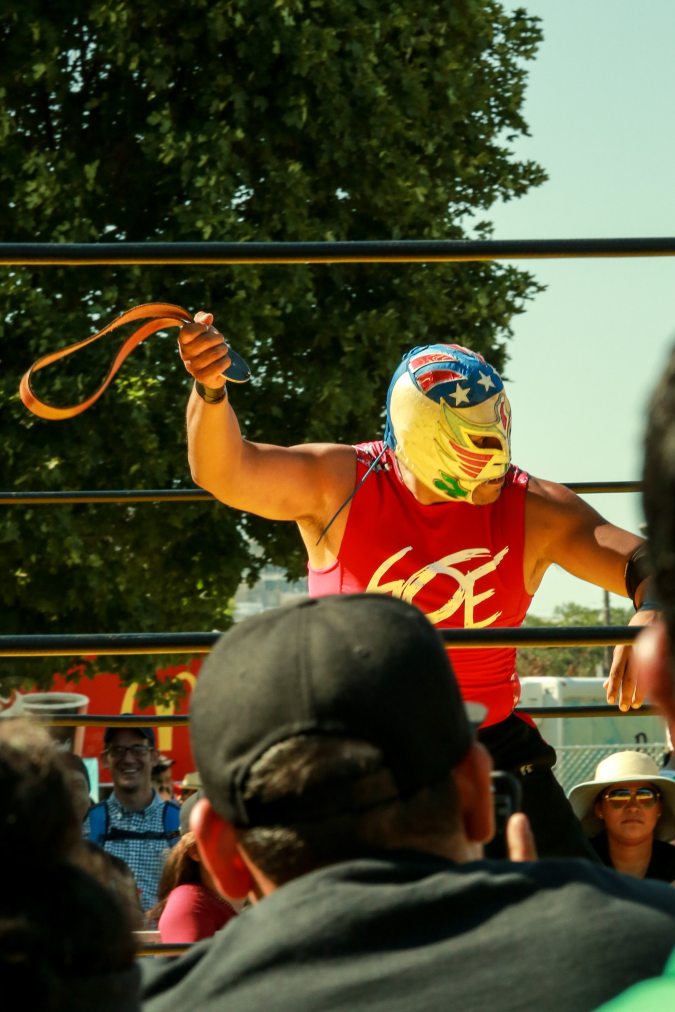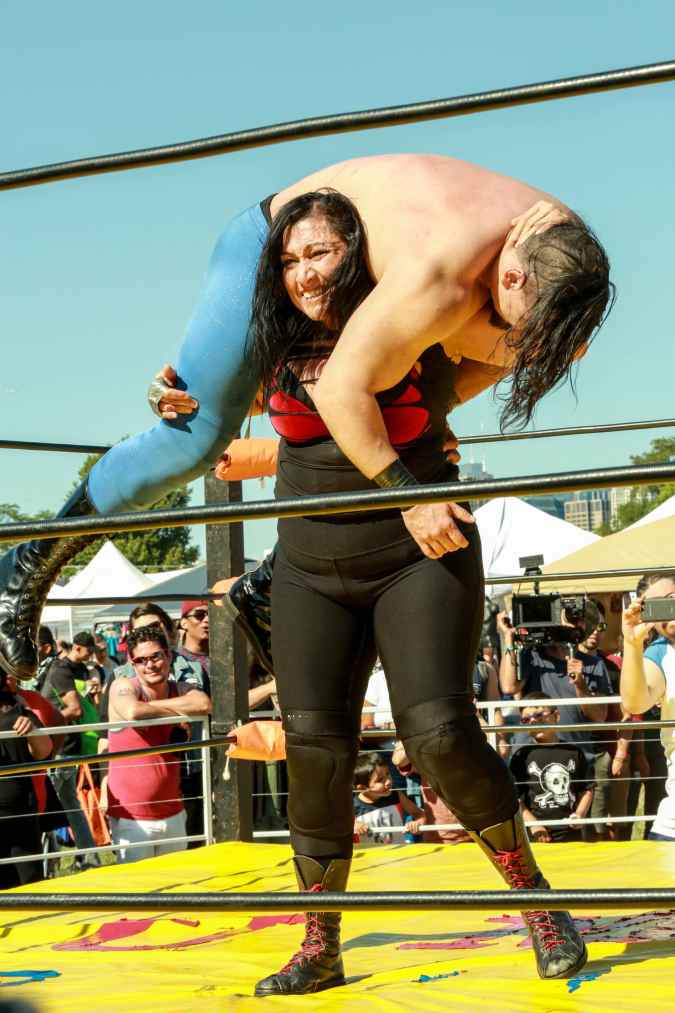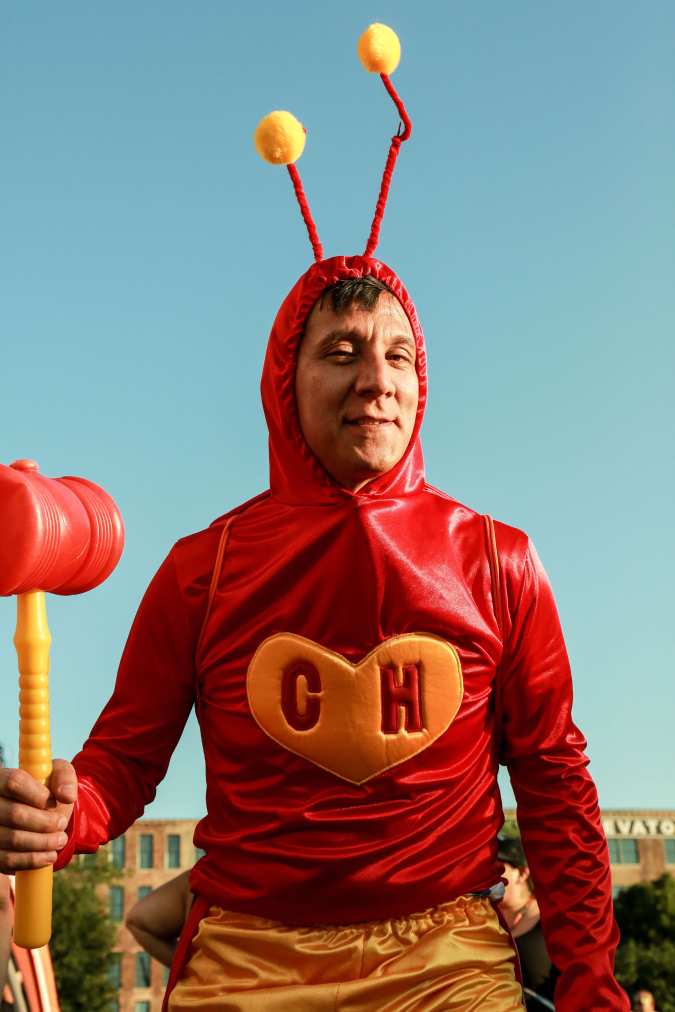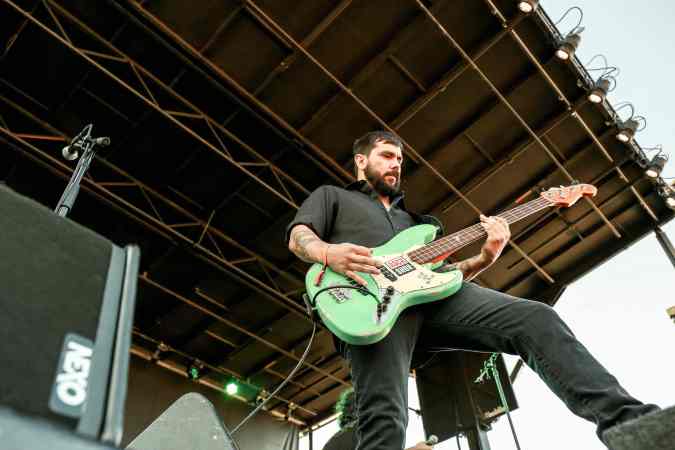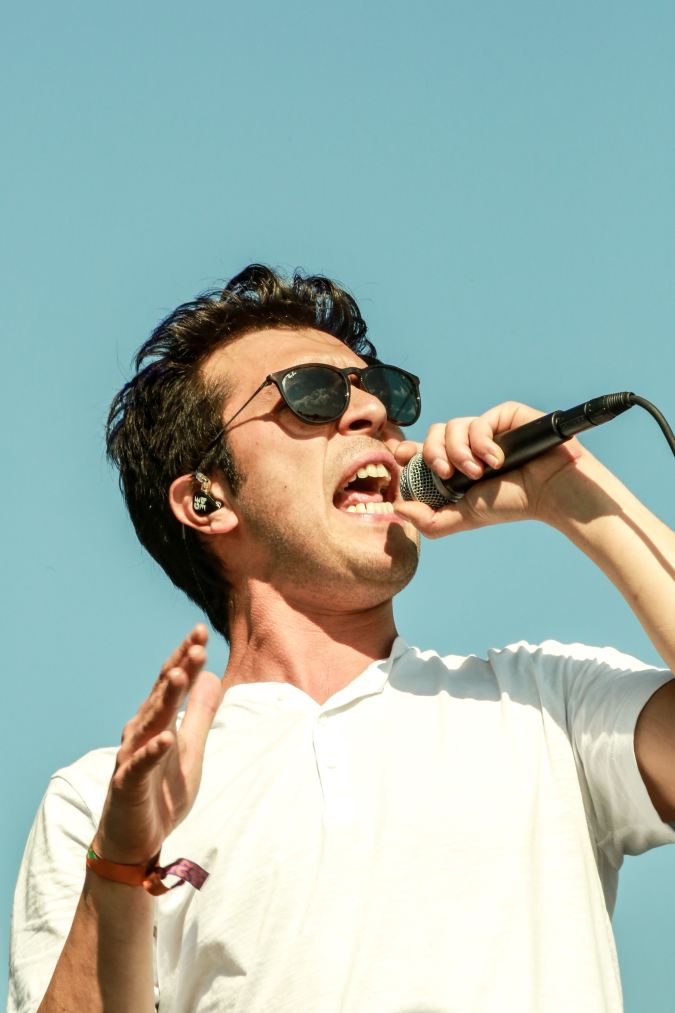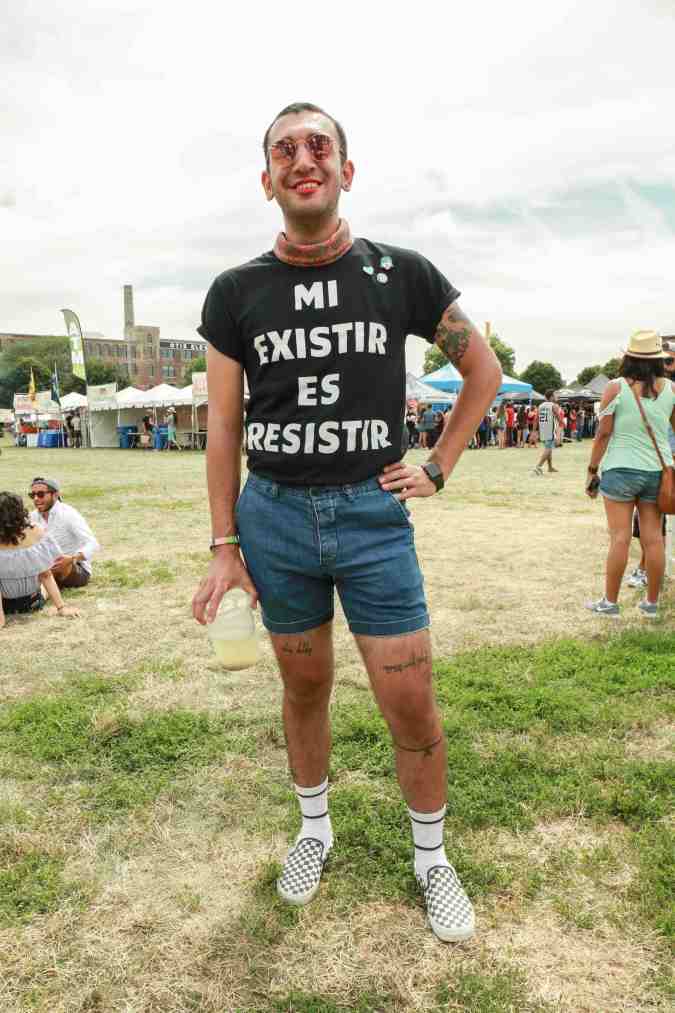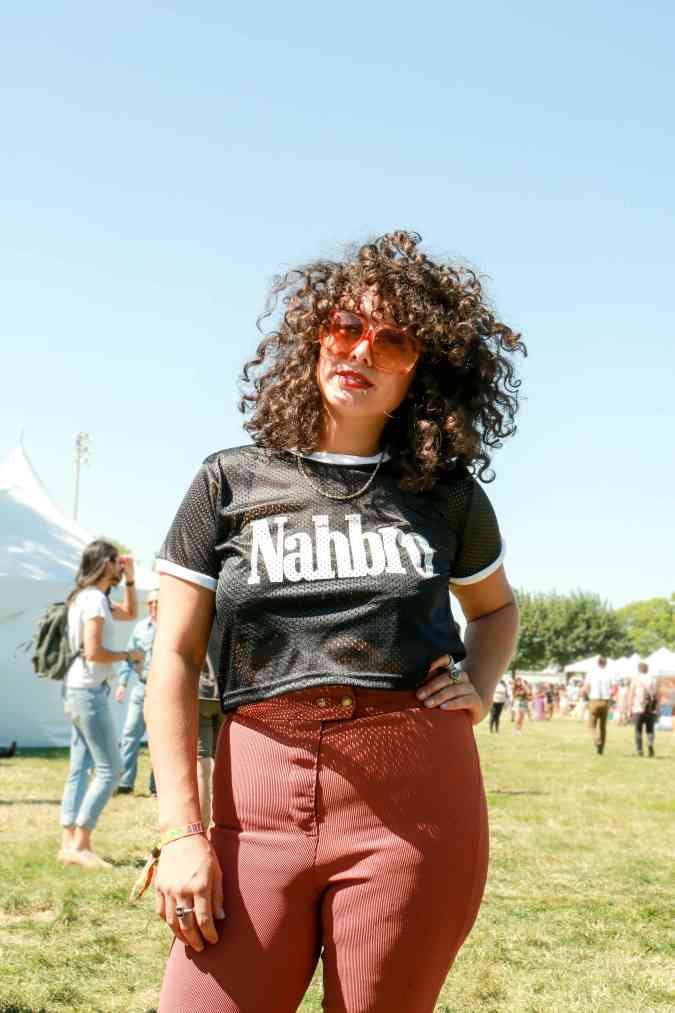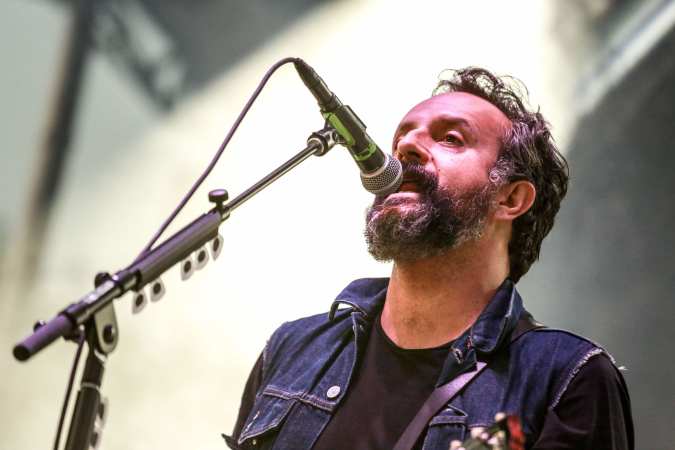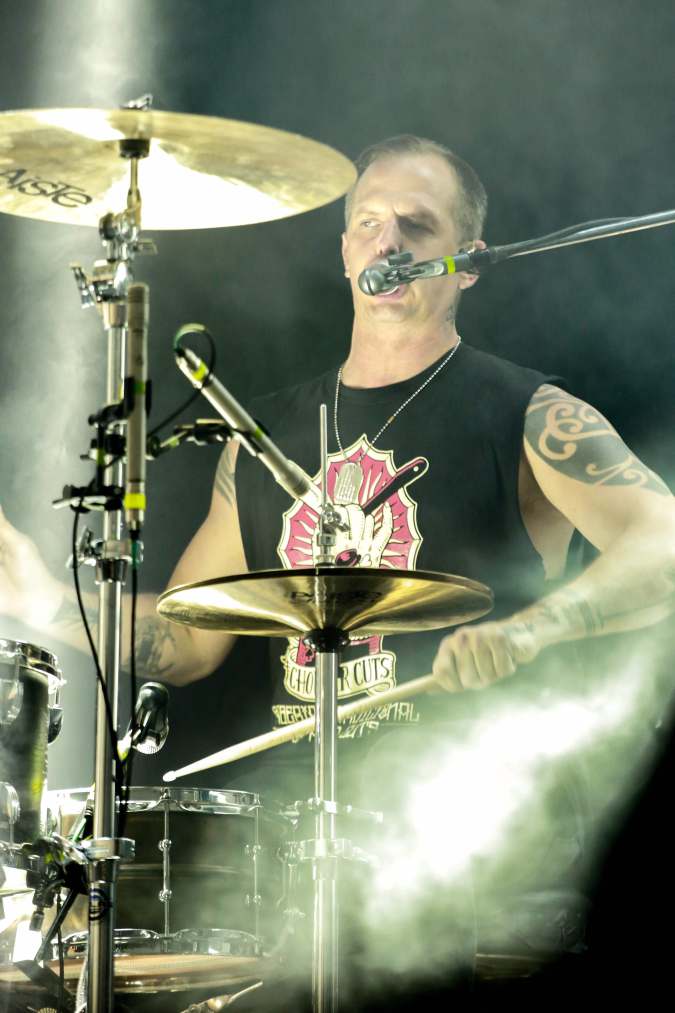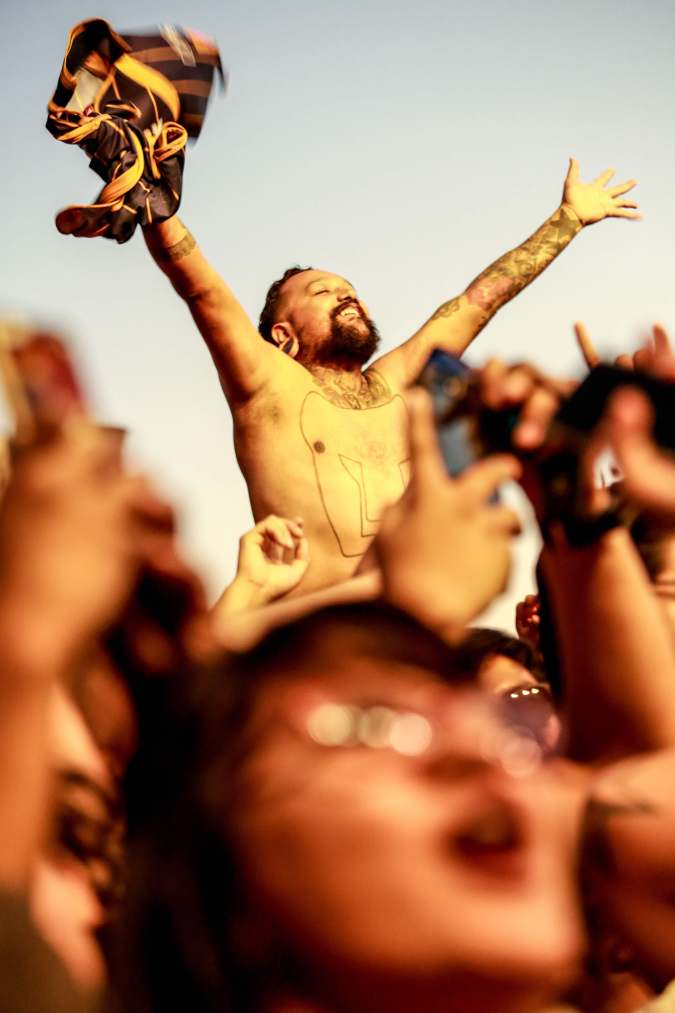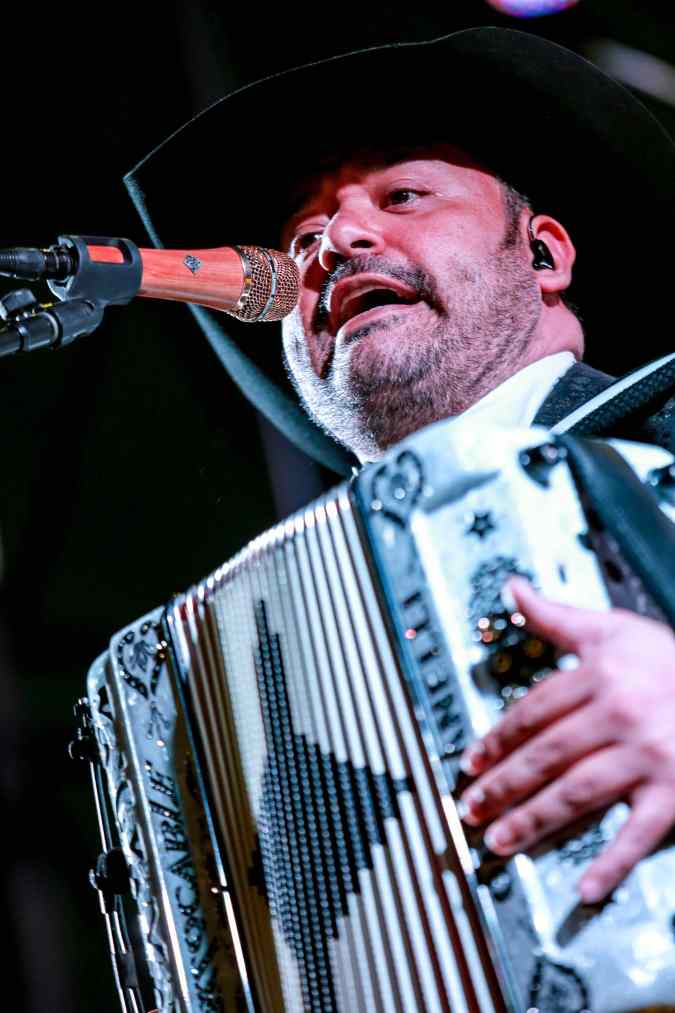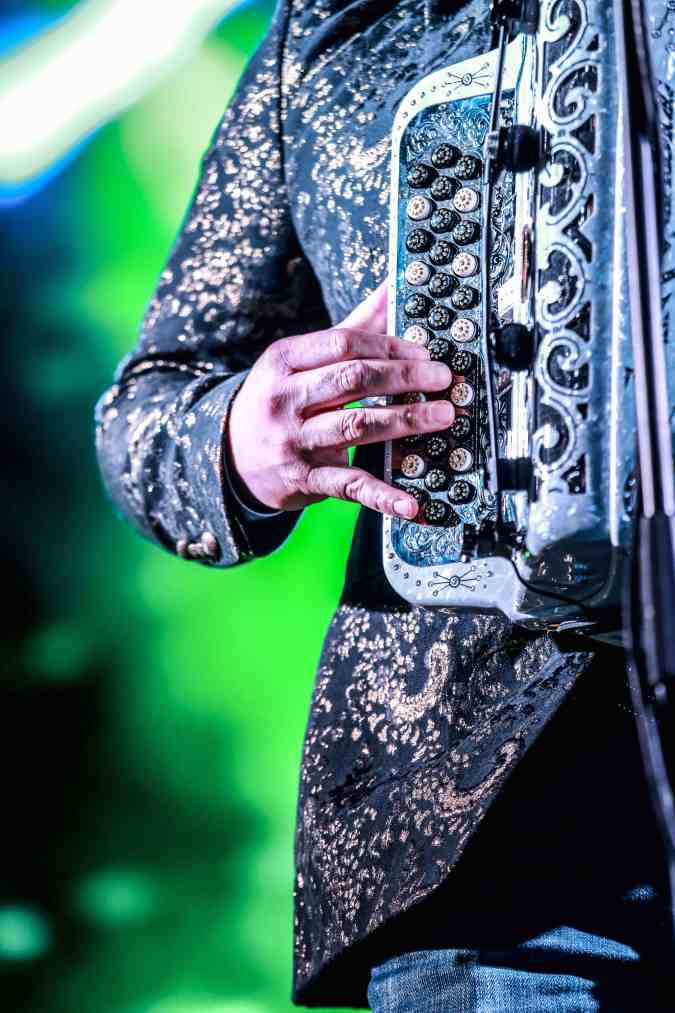When the first edition of Pilsen’s Ruido Fest was announced in 2015, locals had high hopes. It felt momentous for a three-day rock en español fest to join giants like Lollapalooza and Pitchfork as part of Chicago’s summer lineup, especially one that aims to serve local communities. As we’ve expressed in our previous recaps, Pilsen deserves a festival that speaks to the community.
This year’s edition exemplified the challenges of creating a festival that serves Latino Chicagoans, especially in 2017, when political crises in Puerto Rico, Mexico, and the U.S. seem to infiltrate every part of daily life. Over the course of the three-day festival, black-and-white Mexican and Puerto Rican flags peppered the grounds, reflecting the despair many of the city’s Latino residents are experiencing in this political moment. On Saturday, activists staged a protest in front of a Home Depot brand activation that featured a wall installation, citing concerns over the political symbolism of the wall at a music festival geared towards Latinos, and Home Depot co-founder Bernie Marcus’ endorsement of President Trump. Some attendees expressed disappointment over the installation, and the fact that organizers have declined to comment about the protest.
One thing’s for sure: Ruido Fest gave many locals the chance to catch performances from artists that rarely come to the city. I lost count of how many bands opened their sets saying it was their first time in Chicago, which highlights the work that Ruido is putting in to book indie Latino artists in the city. This year’s edition was highly anticipated, due in part to the shift in curation. When it launched, Ruido was branded as a rock en español festival, but the 2017 lineup featured plenty of electronic acts, and even a handful of rappers, with Bomba Estéreo, El Guincho, Javiera Mena, Alex Anwandter, and Simpson Ahuevo among the highlights. Ruido is a festival that draws much of its attendance on Mexicans and Mexican-Americans from Pilsen, but the fest made a smart choice diversifying its lineup to include acts from Chile, Colombia, and Argentina this year, drawing new crowds and painting a more balanced picture of the demographics of the city. Mexican stalwarts like Molotov and Intocable were a significant draw to the festival offerings, with more emerging acts adding a welcome balance to the mix.
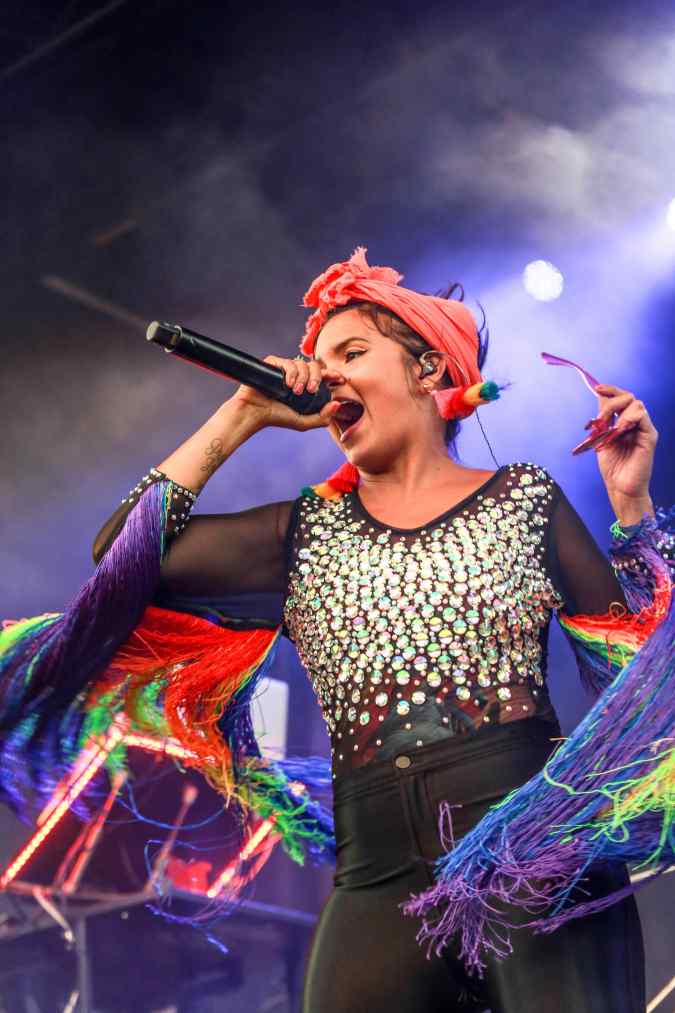
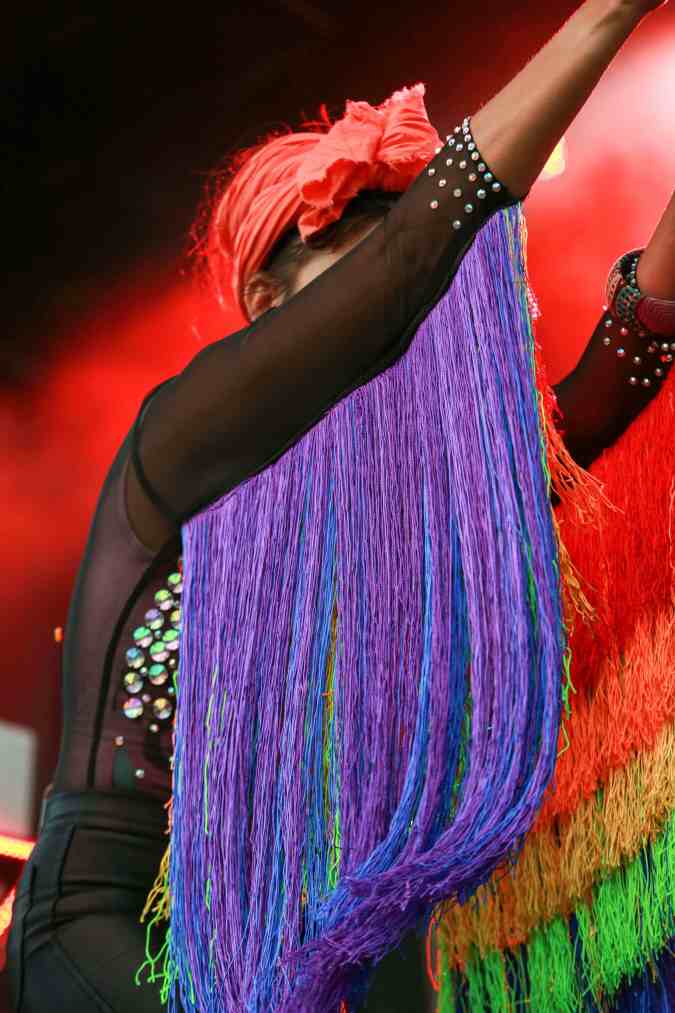
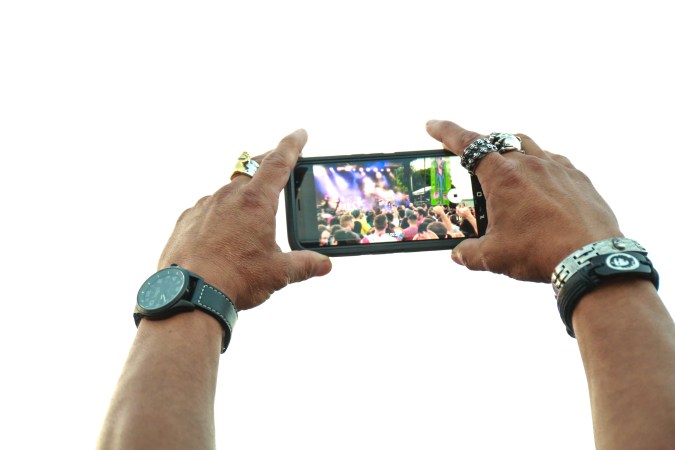
Day one highlights included ska punk squadron Jessica Hernandez & the Deltas, who repped Detroit in a fierce flame jorts and hopped across stage playing the guira performing gems from her double LP Telephone/Telefono. Electroclash legends Titán brought a powerful energy to the stage, with fans chanting “Titán” in unison after each track. Bomba Estéreo frontwoman Liliana Saumet burst onto stage in a rainbow tassel blouse, transforming the end of day one into a full-blown champeta dance party.
On Saturday, the inimitable Silverio rocked fans with a deliciously grotesque set. Onstage, a net protected the artist from the empty cups and cans that flew overhead across the crowd, while Silverio drank out of his own shoe, took his pants off, and picked his nose. Chilean indie pop titan Javiera Mena brought a pair of dancers on stage, adding dynamic choreography to her performance. Perhaps the most hyped set was Molotov, whose high-octane 20th anniversary performance of ¿Dónde jugarán las niñas? felt like a massive middle finger to the man after an emotional day at the Home Depot protest.
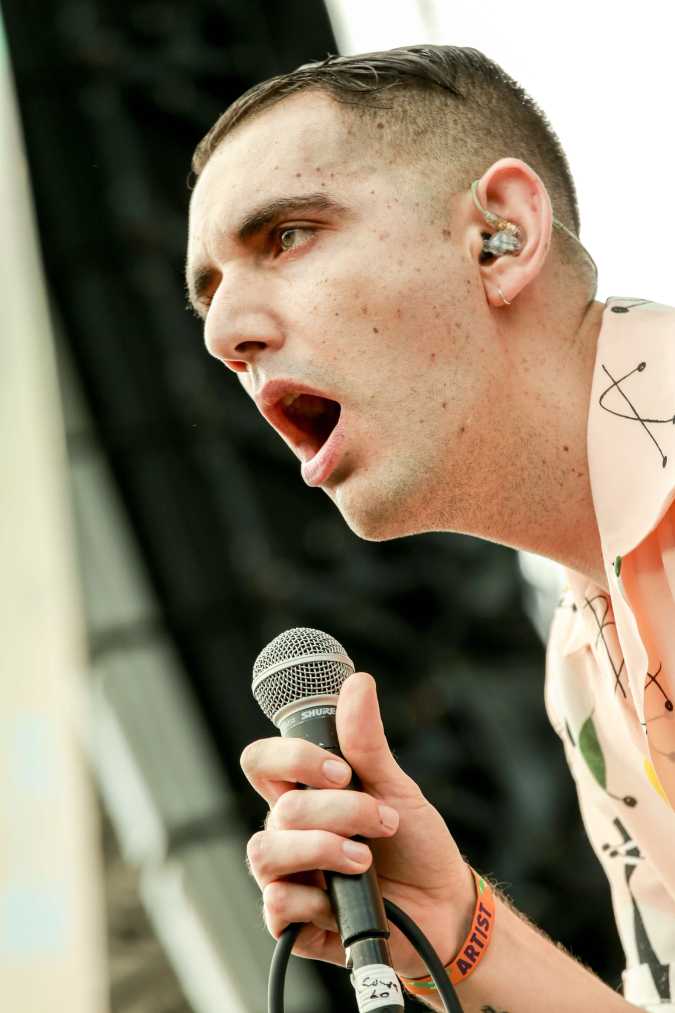
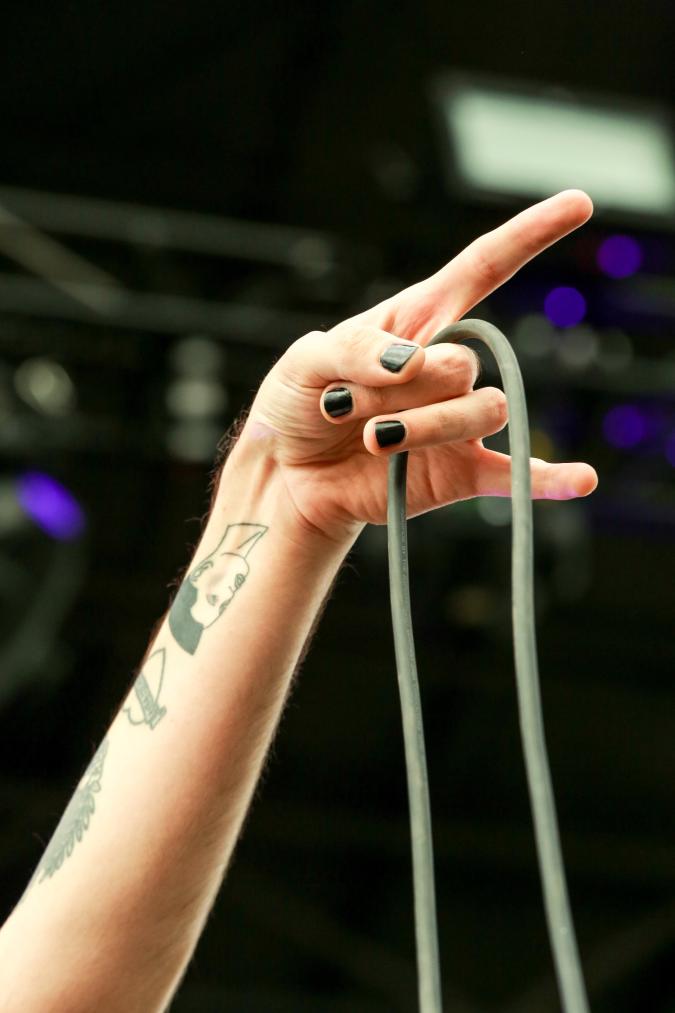
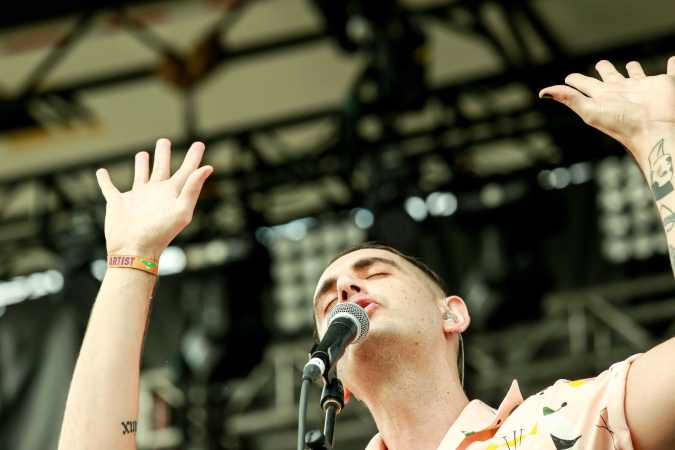
On the final day of the festival, Alex Anwandter brought out his disco dance moves and political pop, opening his set with a declarative statement: “Quiero que nos conozcamos, que lloremos y pensamos.” Performing a medley of hits like “Amiga,” “Siempre Es Viernes En Mi Corazón,” his set resonated with the dozens of queer Latinxs in the crowd.
Closing out the weekend and delivering what was perhaps the most memorable performance of the fest were norteño giants Intocable, whose visuals included bravely political statements about the border wall and the femicide crisis in Ciudad Juárez. Judging by the echoed chants and shouted choruses that permeated the set, Ruido made the right choice booking the legends at a predominantly rock and electronic festival.
Ultimately, in its third edition, Ruido Fest offered an important space for local music fans to see alternative acts that rarely come through Midwestern venues. Time will tell if Ruido responds to the needs and concerns of the community, especially when most of its attendees come from the Pilsen area. Here’s hoping the festival has a bright future ahead.
All Photos by Itzel Alejandra Martinez for Remezcla

